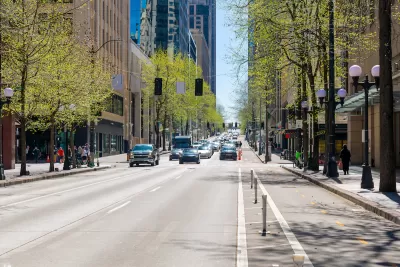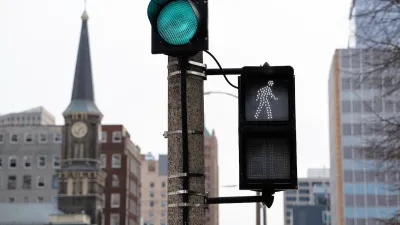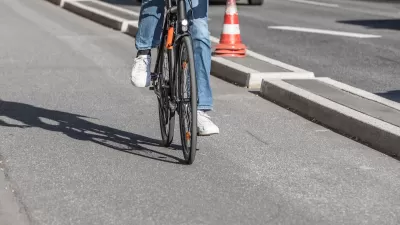An analysis of seven road safety project sites showed no negative economic impact on surrounding businesses.

In an article for UW News, Alden Woods highlights new research from the University of Washington that shows that road safety projects built as part of the city’s Vision Zero pledge had no negative economic impact on adjacent businesses.
An analysis of seven safety projects showed no reduction in business over three years. “In the three years after each safety intervention, researchers found no significant difference in the year-over-year change in revenue of the businesses in the intervention and comparison sites. On average, taxable sales increased in both the intervention and comparison sites over time, and at largely the same rate.”
The results could help convince reluctant business owners, who often oppose road safety projects under the assumption that they could be bad for business. According to study co-author Andrew Dannenberg, “The sales data do not suggest any economic harm occurred, in fact there were a few instances where the safety interventions might have even helped sales.”

Manufactured Crisis: Losing the Nation’s Largest Source of Unsubsidized Affordable Housing
Manufactured housing communities have long been an affordable housing option for millions of people living in the U.S., but that affordability is disappearing rapidly. How did we get here?

Americans May Be Stuck — But Why?
Americans are moving a lot less than they once did, and that is a problem. While Yoni Applebaum, in his highly-publicized article Stuck, gets the reasons badly wrong, it's still important to ask: why are we moving so much less than before?

Research Shows More Roads = More Driving
A national study shows, once again, that increasing road supply induces additional vehicle travel, particularly over the long run.

Judge Halts Enforcement of Anti-Homeless Laws in Grants Pass
The Oregon city will be barred from enforcing two ordinances that prosecute unhoused residents until it increases capacity and accessibility at designated camping sites.

Advancing Sustainability in Los Angeles County Schools
The Los Angeles County Office of Education’s Green Schools Symposium brings together educators, students, and experts to advance sustainability in schools through innovative design, climate resilience strategies, and collaborative learning.

Using Old Oil and Gas Wells for Green Energy Storage
Penn State researchers have found that repurposing abandoned oil and gas wells for geothermal-assisted compressed-air energy storage can boost efficiency, reduce environmental risks, and support clean energy and job transitions.
Urban Design for Planners 1: Software Tools
This six-course series explores essential urban design concepts using open source software and equips planners with the tools they need to participate fully in the urban design process.
Planning for Universal Design
Learn the tools for implementing Universal Design in planning regulations.
City of Moreno Valley
Institute for Housing and Urban Development Studies (IHS)
City of Grandview
Harvard GSD Executive Education
NYU Wagner Graduate School of Public Service
City of Cambridge, Maryland
Newport County Development Council: Connect Greater Newport





























